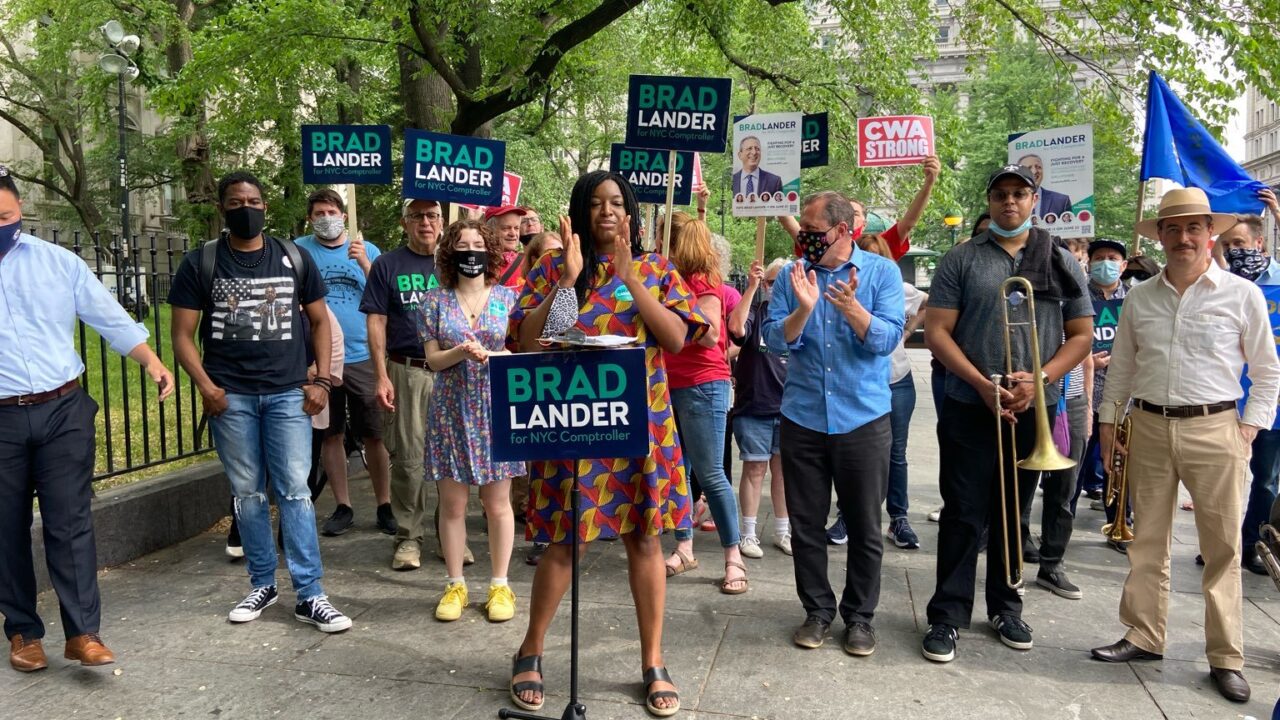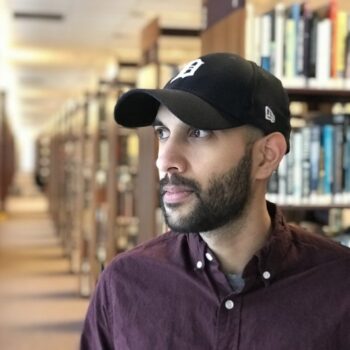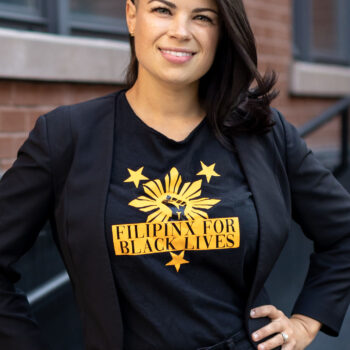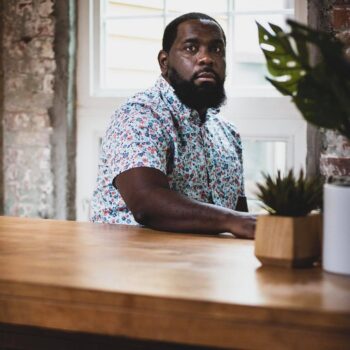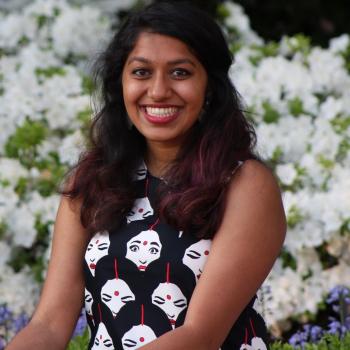The left racked up a number of impressive victories in New York’s primary races this summer — ushering in the most progresive City Council in recent history, winning the Comptroller’s race, and fending off a conservative Democrat in the DA’s race. Upstate, the socialist candidate India Walton stunned many when she won the primary for Mayor of Buffalo. But the movement faltered in the New York City Mayor’s race. The left failed to cohere early on and ultimately lost to the centrist Eric Adams.
The elections highlight how far the movement has come while exposing the fractures that continue to hamper the left, as well as progressives’ challenges in connecting with more moderate working-class voters, especially over concerns around public safety. In this roundtable, which has been edited and condensed, Working Families Party’s Ravi Mangla sits down with veteran organizers Carlyn Cowen of The Jewish Vote, Stanley Fritz of Citizen Action, Paulette Soltani of VOCAL-NY, and Divya Sundaram of NY WFP to talk about what happened this election cycle, how the left failed to take advantage of the new ranked-choice voting system, and what progressive strategy across the state should look like moving forward.
Ravi Mangla: Despite Eric Adams’s victory, progressives made some impressive gains this cycle. Tell us about some of them and the challenges of winning at the mayoral level versus the City Council level.
Stanley Fritz: We had much more success at City Council because we were a lot more definitive about our city council candidates at a much earlier stage, and a lot clearer about the time and energy we could put into those races. We started endorsing the City Council races all the way back in October or November, maybe even earlier than that. So it’s a lot easier to be like, “This is our person, this is what we’re going to do, and we’re going to go all in.” Also, when you’re talking about a City Council race, you’re talking about somebody, in a good district, getting 10,000-to-15,000 votes. It’s a more containable universe, and it’s a lot easier to figure out what your base is and what you have to build up [to].
At the mayoral level, you’re talking about the entire city. And New York City is a community that has lots of micro-communities, so it makes it a lot harder to manage. Additionally, the left was not united on a candidate. We took too long. The left did a poor job of pushing back against the talk about the rise in crime because there has been a rise in crime. Is it as bad as the 80s and 90s? Absolutely not. But when somebody’s block is getting shot up, they don’t want to hear about restorative justice; they want to hear about what’s going to make them safe right now, and I don’t think we did enough work to figure out how to do that. So Eric Adams was able to position himself as, I’m Black, so I’m impacted by police brutality, but I was a cop, so I was one of them, but maybe I held them accountable and now I’m going to protect you because cops are good. And we didn’t really have anything to push back against that narrative.
Paulette Soltani: AOC right now is doing work around how to develop deep canvassing conversations around moving the public safety, defund/re-invest conversation forward. Even with our own membership, people have knee-jerk reactions to the violence in their communities and their immediate response is policing. But as you scratch past the surface, and you really start to have those conversations, people move. And so we need to do so much more of that if we’re going to win.
RM: How should we understand Eric Adams’s victory? He was backed by labor. What does that mean for labor’s role in the broader progressive movement?
SF: Labor is always going to skew a little bit more conservative. We’re hippies. We’re always pushing to the edge of possibility, that’s just the truth of it. When it comes to labor, they try to be a lot more practical; it’s a lot more means to an end. It’s like, what is going to help our workers? So I know DC 37 endorsed Eric Adams, and a lot of that was about, is he going to cut the budget for our workers when it’s his time to do the budget? I’m assuming this is what their thought process is. But if it is, it ignores the other pieces of Eric’s politics, which are not good for their constituents but don’t necessarily go into what the priorities of the unions are, which is to protect the jobs and the rights of their workers.
Unions have a lot of power, but unions in New York City particularly have a lot of Black and brown power. So even if we don’t always agree with decisions that they’re making, they’re responding to their membership. And I think it’s important for us to talk in Black and brown communities because a lot of folks from the left, on our side at least, we’ve gotten a little bit too caught up in Twitter speak and in our silos; everybody wants to pat each other on the back and create safe spaces where we agree with everything each other say and we don’t have critical conversations. We’re not connecting, and we need to double down and go in these communities and meet people where they are and then do the political education to shift them.
PS: So many of the issues that [we] work on are issues that impact union members. Some of our members are living in shelters and are union members. We see the potential of what it means when we’re able to get labor on our side. We worked with the Hotel Trades Council to pass a housing bill recently; working together was so [essential] for our victory.
Carlyn Cowen: Labor sometimes backs candidates that don’t necessarily align with those broader issues [that affect their members], even if they are really tight on the core issues of the unions. But we also see that there are a number of folks in labor that are a lot more progressive. A key question for me coming out of this cycle is: how do we begin to bridge that gap and build deeper ties with labor and begin to move them on our issues?
Divya Sundaram: I think labor is better at building governing power than we are. I don’t think they’re as ideologically strict as we are; they move with a lot more flexibility than we do. You can’t say whether one approach is right or wrong, but I think there are lessons we can learn from labor’s approach to building governing power. And maybe there are ways that we need to be a little bit more savvy or strategic or really be thinking about that bigger picture in order to move some of our agenda items.
PS: Labor strongly endorsed in basically all 35 races and won 28 of them. It gives them so much power to help influence even the speaker’s race now. And I think it speaks exactly to what you’re saying; that they know how to build governing power. In 2013, when the WFP and some of our labor allies were still in the WFP, it was a totally different landscape. We did lose a lot of our power when the WFP lost some of those labor partners. And I totally agree that there are some folks [in] labor that are much more aligned to us and work closely with us. But the other side is true too, and in some cases, folks that are further away from us have even more power than some of the unions that are closer to us.
RM: What lessons can we draw from ranked choice voting? As membership organizations, what does this new system mean for your members? And how does it change the approach for endorsements moving forward?
CC: We were all figuring it out in the middle of a pandemic. And so there was really a lot that we were up against in terms of a comprehensive ranked choice voting strategy and then also ranked choice voting education and outreach. And I think that both of those things are equally and incredibly important. As we moved into the strategy for how we were going to leverage ranked choice voting to support progressive candidates and block candidates who would be harmful to progressive causes, we were not necessarily aligned on how best to do that. Did it look like ranking five candidates, even if you weren’t aligned with all of them from a political value standpoint? Did it look like lifting up our top couple of candidates? That, to me, is a critically important lesson: we have to be aligned on what our ranked choice voting strategy is.
Ranked choice voting strategy means nothing without doing outreach and education so that all of New York’s voters know how to use ranked choice voting and feel comfortable going to the polls and making those rankings. The gap between the Twitterverse and working-class, immigrant New Yorkers is huge. And if we don’t successfully figure out how to bridge that with ranked choice voting, then it becomes a barrier rather than actually strengthening political participation. It’s something that we really need to focus on moving into the next cycle.
SF: We just didn’t do the work necessary to educate people and prepare our members, leaders, the general community, or even ourselves on ranked choice voting. That’s my honest opinion. Ranked choice voting was supported by New Yorkers; 70 percent of New Yorkers voted for this. And despite that, you had a good chunk of elected officials, particularly Black and brown elected officials, calling the system racist, trying to get it dispelled so it wouldn’t happen in this election. You had a mayor who did not properly fund the education program.
For us, it was like, if we have to deal with this system, we have to prep our people now. So we thought the best way to do that was to do ranked endorsement. So our members, leaders, and supporters would be like, “Oh, okay, I guess this is how I should be doing things on Election Day.” But we didn’t put a lot of effort into doing ranked choice endorsement trainings.
Kathryn Garcia really benefited from teaming up with Andrew Yang at the end; she almost knocked out Eric Adams from the Mayor’s race. What if, when we had announced our mayoral endorsements, we had also encouraged them to co-endorse each other and really push that? The results might have been different. Ranked choice really should have helped us in this moment, and it didn’t because I don’t think we took full advantage of it. So now the conversation is going to be, do we join this fight to keep it and defend it, or do we let it go and move on?
DS: I think we were still very much stuck in negative toxic campaign attitudes, where it’s every candidate for themselves. And it’s a bit frustrating because all of these candidates who were so focused on their personal victories are also saying, “I built a movement; there’s a movement behind me.” If there really was a movement behind you, I think we would be thinking more strategically about trying to elevate all of us who have shared values and ideals and policies — and get one of us elected. We don’t have that mindset yet; we don’t have that culture yet.
RM: India Walton’s victory in Buffalo, New York, stunned a lot of people. What does it auger for change in parts of the state that have long been held by more moderate and conservative interests?
PS: India Walton’ victory is huge. Part of what we’re seeing is that people have been organizing. The housing movement in western New York has been flourishing for years and is a big part of the reason that Housing Justice for All has been able to make progress. There were shifts already before India’s victory.
DS: Upstate New York is the future; that’s the main lesson. I would say [two things]. First, India told such a good story. She is a Black socialist candidate, but socialism was not the defining theme of the campaign. Instead, her campaign was really focused on, “Let me tell you my story as a single Black mother to four Black sons, as a nurse, as an organizer, as someone who has had to live under 16 years-plus of neoliberalism in Buffalo. And let me tell you how that has affected my life.” And that was a story that so many people in Buffalo could relate to. And she was then able to offer a vision of, this is how it could be different, this is how Buffalo could be the future. We need to be able to articulate this shared vision of what the left is trying to build.
Second, we need to invest in these municipal races because that’s how we build momentum for the bigger statewide wins and how we keep putting pressure on cities like New York City. The Homes Guarantee campaign was really invested in India’s win; we did a lot of work to build support and build this narrative that India Walton is a Homes Guarantee candidate. And now that’s shifted our focus on how we’re approaching electoral work. Maybe we can let other people throw down for congressional races and other big races that we don’t have the capacity for. Maybe our real victories can come from really digging into those municipal races that not a lot of people are paying attention to because they just don’t think you can get us much done, and maybe that’s how we elect thousands of Homes Guarantee mayors across the country. And I think if we can figure out how to do that work on the local level and keep winning on the local level, it gives us more power and leverage to take this statewide and nationwide.
SF: The establishment is not used to being challenged and they tend to be very dismissive of the left, so they did not take India seriously. Their mistake, our success. The new challenge for India now, and this is the challenge for most people on the left, is how do you take what you’re talking about and that very clear narrative, and then translate it into governing? Because governing is much harder.
DS: [Walton’s campaign was a] really important leadership development opportunity. When India first launched the campaign, she couldn’t find a campaign manager with experience because no one was willing to touch that race. And so the WFP worked with working-class Buffalo moms to give them the skills and the experience and the knowledge to run this race. And we are doing that statewide. And now we are building that bench of experienced campaign professionals who can go on and run more races.
RM: What does this year’s election mean for the future of progressive politics, both in New York City and across the state? Where did we make gains versus lose ground? And what opportunities do you see in the coming years?
CC: It’s one thing to be a candidate; it’s another thing to govern. And so much of that actually turns into, how does the City Council get structured? Who is the speaker? What do the committees look like? What are the bills they prioritize? How do they approach the budget? And then, similarly, with the administration, who are the deputy mayors? Who’s running the agencies? How do we approach all of that? And I think that one of the big tasks for us is to continue pushing on all of our issues, on all of those fronts. On the left, we do need to get better about how we talk about our issues and especially how we connect with New Yorkers across the city and across the state about our issues.
But we also need to really get better about what that means, to push from a governing standpoint. So what does it look like to translate our issues into programs, into line item budget priorities? Because ultimately that’s what it’s going to come down to in an administration.
At the end of the day, we have elected the most progressive city council, and it’s still going to be our role to hold them accountable, just as it is to hold accountable folks like Eric Adams and maybe some more conservative council candidates. And I think that that’s also really an opportunity for us to do that deep education about our issues, to push our issues through the council and through the administration, as we learn how to better organize around them and how to prepare ourselves for the next electoral cycles.
DS: I’m left with two questions. One, are we power hungry enough? And I don’t think being power hungry is a bad thing. I think it is just the hunger to organize more people, organize more money into our movement, into our causes. And I think sometimes in this past electoral cycle, we got really hung up on the right way to be a left candidate. And I don’t think there is a right way, and I think there is a lot of necessity to also be willing to meet people where they’re at.
And then the second question I have is, is it effective to be running campaigns with a strong focus on defunding the police? And how are we talking about that issue? How are we doing the political education around that issue? I think we saw that it is a very divisive topic. And when you say defund, a lot of people are against that. When you say budget justice, when you say investment in our communities, people are more willing to hear that. So is that the issue we should be focusing on when we’re campaigning? Or do we need to be thinking about how we’re talking about it differently? Or maybe we need to be emphasizing other issues that really get to this broader idea of public safety. I don’t really know. I don’t have the answers to that.
My personal instinct as a housing organizer is we need to be emphasizing housing issues more because I do think that speaks to the moment we’re in and the things that people are struggling with, especially coming out of a global health crisis and thinking about how much traction the cancel rent movement gained and how much work was done to defend against evictions. So no answers; just questions.
SF: We should be cutting the police budget, but budget justice just works better. And I think the reason that so many folks have stayed with defund the police is because more of that Twitter speak, if you say that it’s a bad slogan, then it’s like, “Oh, well you’re not an ally, or you’re not a lefty, or you don’t actually want to do this.” When the reality is that the right has successfully turned that into a toxic framing. But if you ask most people in these communities who voted for Eric Adams, would they rather the police have an $11 billion budget and robotic dogs and a police video game card where they can fingerprint children, or could we take $5 billion away from that budget and put it towards homeless services, mental health services and additional housing services, they would say, “Yeah, let’s do that.”
Particularly for New York City, but really all over the state now, the one thing that almost every New Yorker can agree on is that housing is unaffordable and unstable. In every part of the state. So you get people around housing and then you use that to help push the other pieces like the criminal legal system, like mental health. But that takes some unity, that takes a lot of discipline, and it takes flexibility because at the end of the day, I think one of the questions we stopped asking ourselves was, do you want to be right, or do you want to get things done that will change the material conditions of people’s lives? I don’t need to be right.
